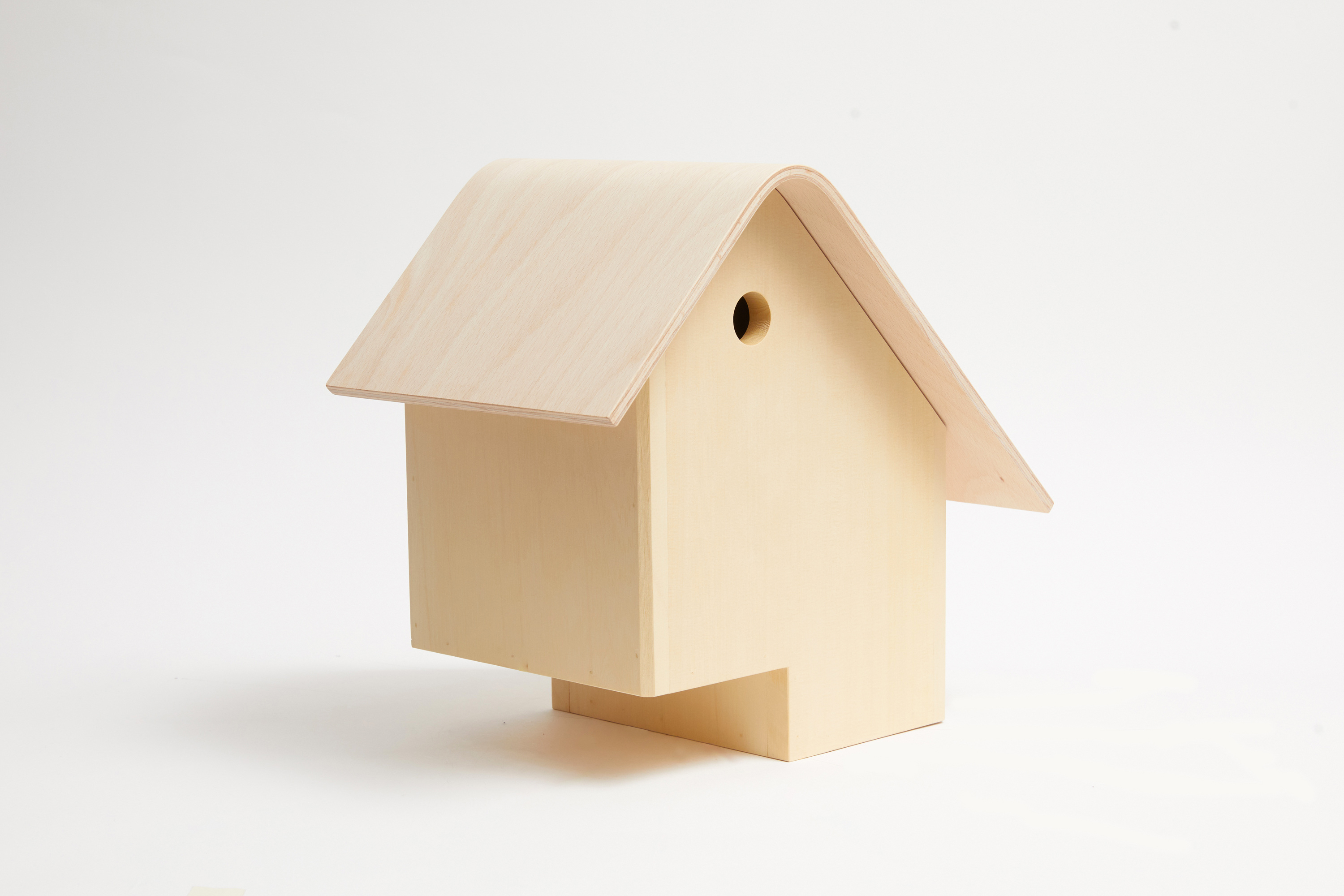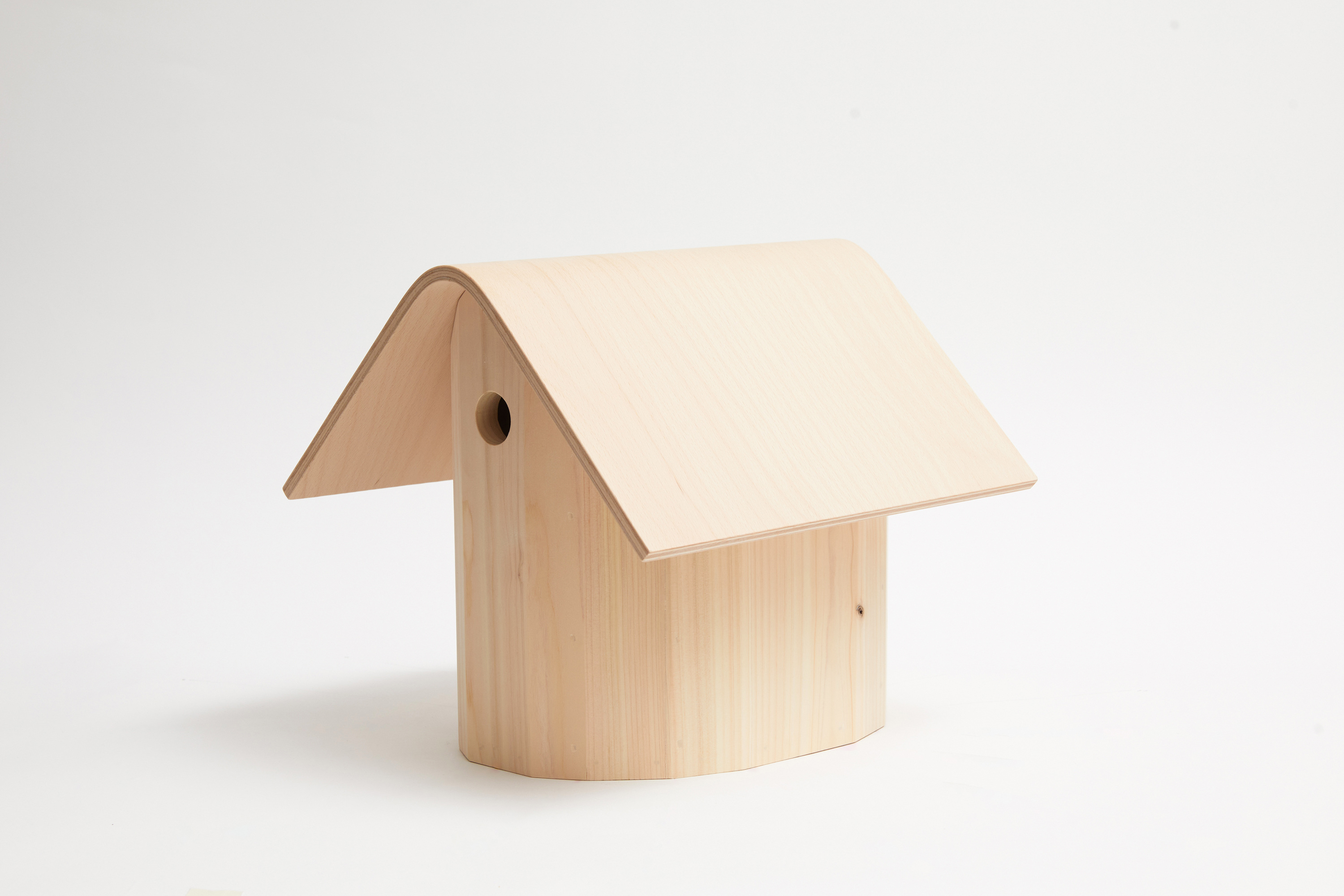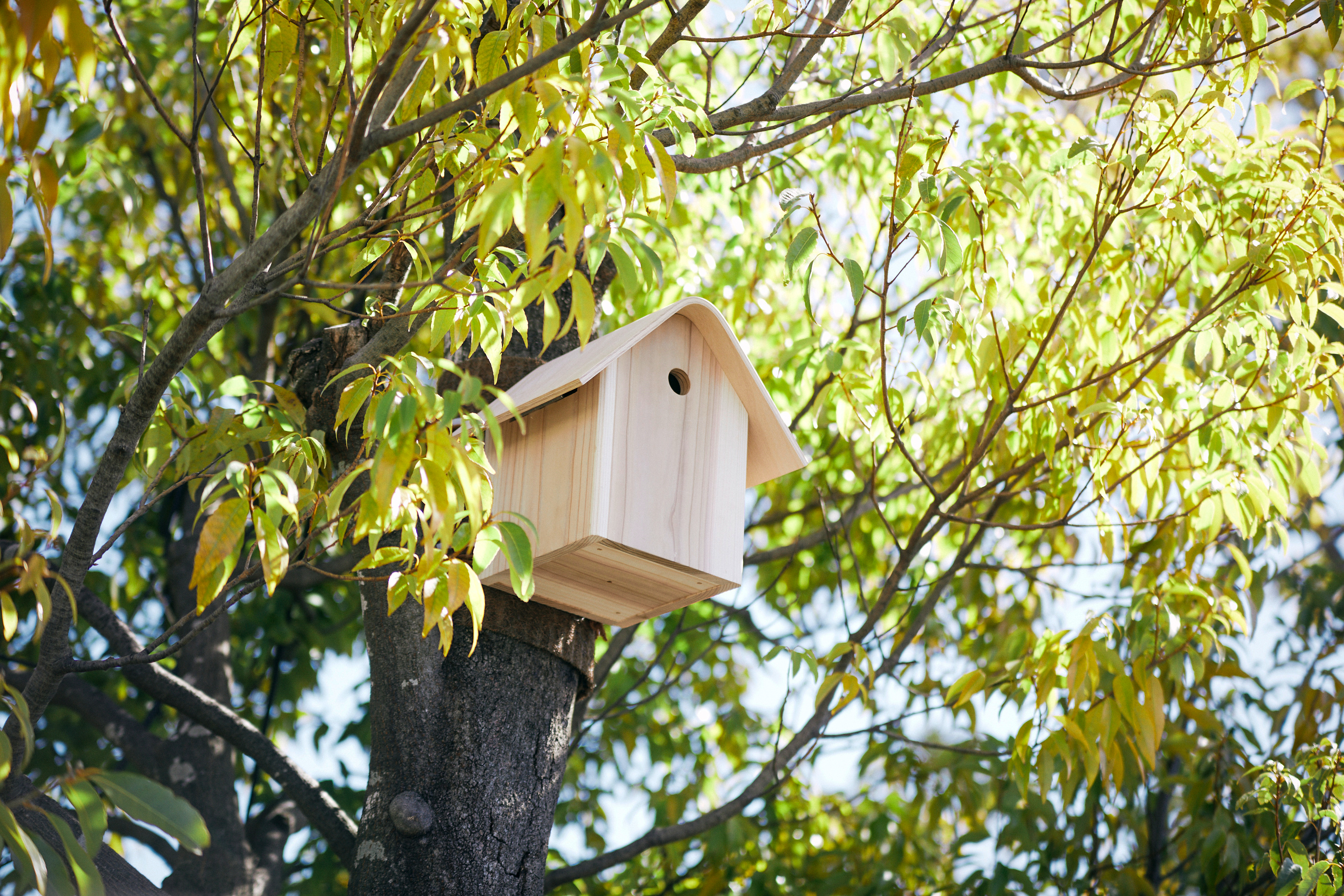A thoughtfully designed birdhouse that provides a comfortable habitat for birds and also helps to boost biodiversity in urban spaces.
Made in a collaboration between architect and designer Ryusuke Nanki, biodiversity-focused urban developer Tokyu Land Corporation, and Japanese modernist furniture manufacturer Tendo Mokko, the Tokyu Birdhouse is purposefully designed to help birds live comfortably in urban settings. With input from avian specialists, the team created a beautiful birdhouse that not only improves the birds’ living conditions, but also helps to boost biodiversity in cities. The project brought together design, experimental ideas, science, and sustainability, resulting in a modern birdhouse that is as practical as it is beautiful.
Designed specifically for the Japanese tit, the Tokyu Birdhouse comes in different variations. Apart from classic rectangular shapes, they also feature oval forms or two-level layouts. To create them, the team applied concepts from human housing development as well as environmentally friendly crafting techniques. The birdhouses feature small circular openings and spacious interiors. Oval rooms and maisonettes provide plenty of room for eggs and space for the parent birds to move and rest comfortably. Thinned cedar and water-resistant cypress wood ensure a comfortable habitat, while the one-piece, molded roof provides superior protection against rain and wind.
Installed in Tokyo, the birdhouses provide cozy spaces for egg-laying and nesting, in the middle of the bustling metropolis. Apart from sheltering the birds from the elements, they also enhance biodiversity in the urban environment. Unsurprisingly, the Tokyu Birdhouse has an eco-friendly build. To produce the series, Tendo Mokko used locally sourced wood, including environmentally friendly thinned cedar and surplus wood. The project doesn’t end here, however. Findings from researching the impact of urbanization on bird communities will provide crucial information for future conservation initiatives. Photography© Ryohei Sato.















